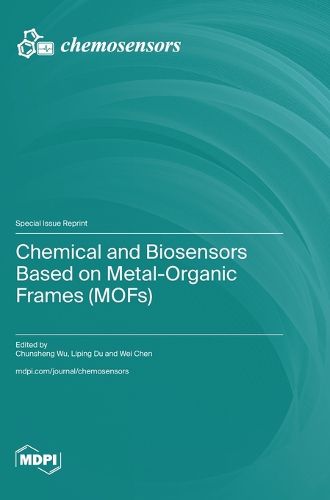Readings Newsletter
Become a Readings Member to make your shopping experience even easier.
Sign in or sign up for free!
You’re not far away from qualifying for FREE standard shipping within Australia
You’ve qualified for FREE standard shipping within Australia
The cart is loading…






This title is printed to order. This book may have been self-published. If so, we cannot guarantee the quality of the content. In the main most books will have gone through the editing process however some may not. We therefore suggest that you be aware of this before ordering this book. If in doubt check either the author or publisher’s details as we are unable to accept any returns unless they are faulty. Please contact us if you have any questions.
Metal-organic frameworks (MOFs) provide unprecedented opportunities for the development of novel biosensors due to their decisive advantages, such as their large surface area, high porosity, tunable structures, and flexibility regarding tailored properties. Sensitive elements could be coupled to MOFs in situ through the addition of bioactive molecules during the MOF synthesis process. In addition, their tunable size, large surface area, and channels of various sizes make MOFs ideal platforms for constructing hybrid composite materials that are suitable for use as sensitive elements in chemical and biosensing applications. The applications of MOFs in chemicals and biosensors have attracted increasing attention, which has led to the development of novel structures and features in MOF-based chemicals and biosensors, such as higher stability, higher sensitivity, higher flexibility, and higher specificity. The following Special Issue will provide a forum for the latest research efforts in the field of MOF-based chemicals and biosensors, with emphasis placed on the corresponding synthesis and modification of MOFs and their applications.
$9.00 standard shipping within Australia
FREE standard shipping within Australia for orders over $100.00
Express & International shipping calculated at checkout
This title is printed to order. This book may have been self-published. If so, we cannot guarantee the quality of the content. In the main most books will have gone through the editing process however some may not. We therefore suggest that you be aware of this before ordering this book. If in doubt check either the author or publisher’s details as we are unable to accept any returns unless they are faulty. Please contact us if you have any questions.
Metal-organic frameworks (MOFs) provide unprecedented opportunities for the development of novel biosensors due to their decisive advantages, such as their large surface area, high porosity, tunable structures, and flexibility regarding tailored properties. Sensitive elements could be coupled to MOFs in situ through the addition of bioactive molecules during the MOF synthesis process. In addition, their tunable size, large surface area, and channels of various sizes make MOFs ideal platforms for constructing hybrid composite materials that are suitable for use as sensitive elements in chemical and biosensing applications. The applications of MOFs in chemicals and biosensors have attracted increasing attention, which has led to the development of novel structures and features in MOF-based chemicals and biosensors, such as higher stability, higher sensitivity, higher flexibility, and higher specificity. The following Special Issue will provide a forum for the latest research efforts in the field of MOF-based chemicals and biosensors, with emphasis placed on the corresponding synthesis and modification of MOFs and their applications.